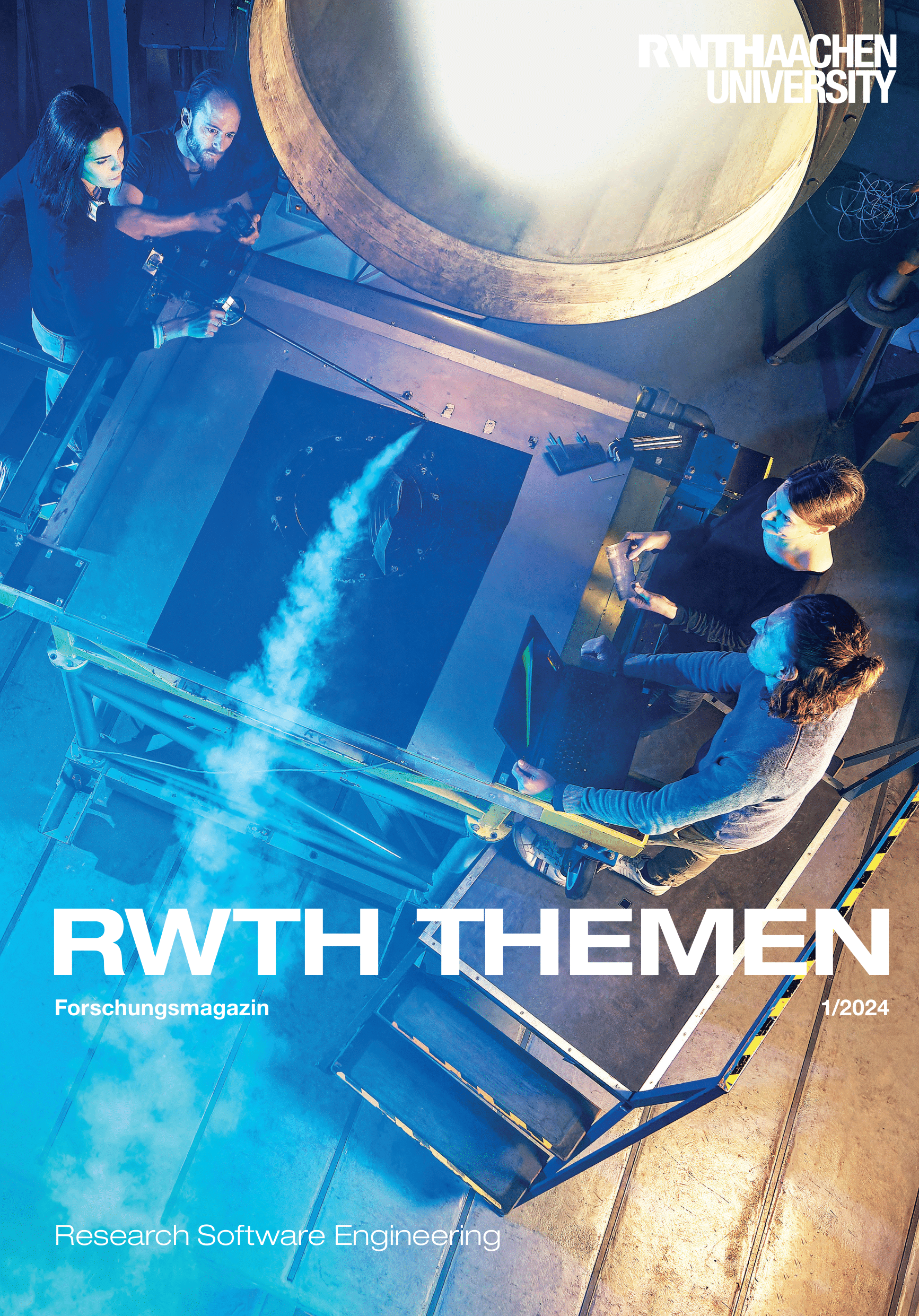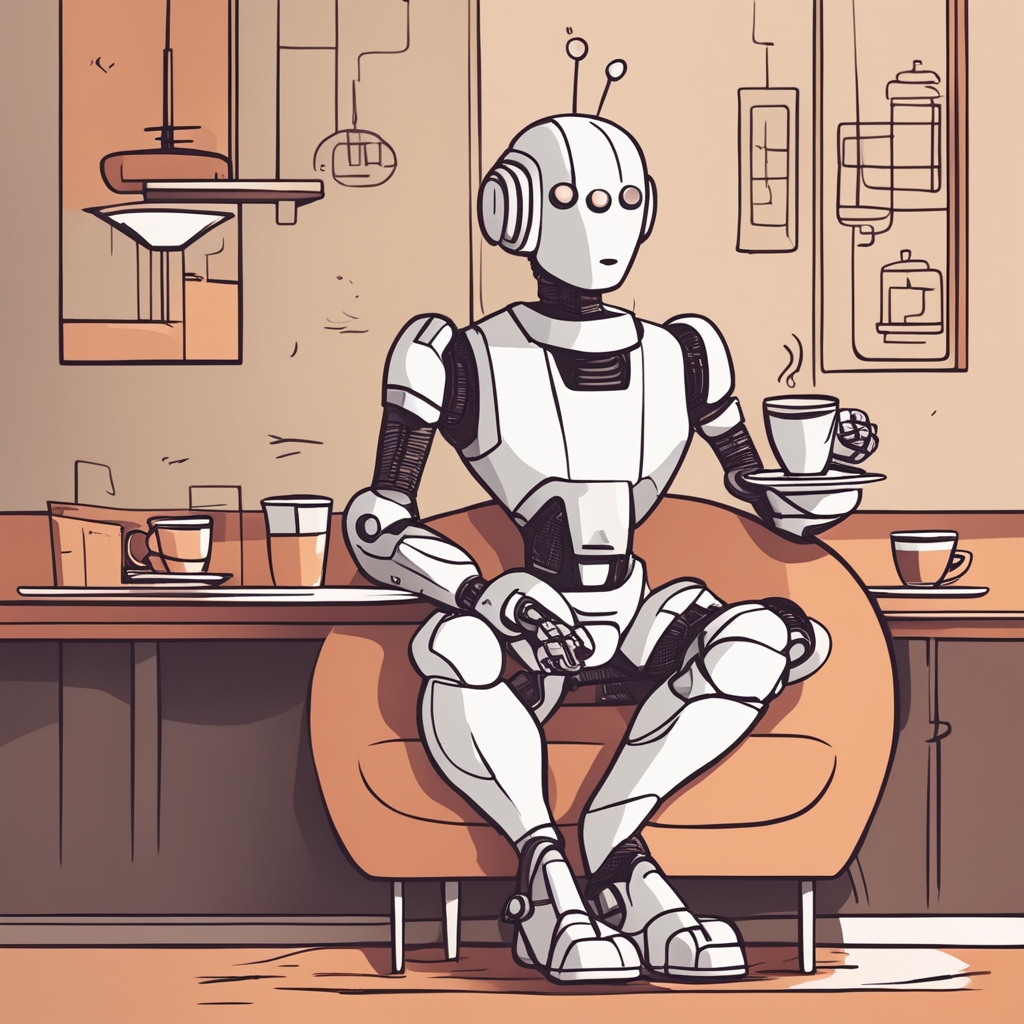Research Software Engineering @ RWTH Aachen University
News
- A new article on RSE:
- The official GI/deRSE Muster-Leitlinie for RSE is published:
- The DFG has published
- [DFG24] Deutsche Forschungsgemeinschaft e.V. Handreichung: “Umgang mit Forschungssoftware im Förderhandeln der DFG”, Oktober 2024.
- It describes (a) core principles of research software development and (b) how to embed software development in DFG research proposals. This is great news, because it appreciates RSE, RSEs and their work as core and relevant scientific activities.
- We at RWTH are currently finalizing the “RWTH Leitlinie für die effiziente Entwicklung von Forschungssoftware”. This document is currently available from e.g. Bernhard Rumpe (rumpe@se-rwth.de) and will hopefully become finalized and approved in the next few weeks. It is based on the official GI/deRSE Muster-Leitlinie (see above).
A Definition and Short Introduction
Definition: Research Software Engineering (RSE)
Research Software Engineering (RSE) is the use of Software Engineering practices in research applications, i.e. software created for and primarily used in scientific research projects (according to Wikipedia).
RSE addresses the "crisis" in software development that results from the need of increasingly complex software, reliable and reproducible results, sustainable reusability and adaptivity of software, and, of course, efficient development. The term RSE has become a collective term to address these challenges in a holistic form. In other words, RSE adresses developers, models, tools chains, code, and to some extend also associated data in a development project.
Goals of this Website
RSE targets the development project and, in particular, developer effectiveness as well as the correctness and usefulness of the code (and lesser the code efficiency). RSE uses established Software Engineering techniques, methods and practices and adapts them to the engineering of research software.
In addition, RSE addresses management and organizational issues in research software development, i.e. what team leaders and deciders should know, as well as community building.
There are also other forms of assistance at the RWTH: E.g. when the challenge is
- to improve code efficiency, then please take advantage of the RWTH HPC Consultation Hour;
- to identify the optimal algorithms, then consult StackOverflow the appropriate literature, or ask a search engine or LLM;
- to retrieve a neuronal net layout/training pipeline, then contact the RWTH AI center.
This website is voluntarily maintained by the organizers of RSE at RWTH Aachen
University and may slowly grow with additional information and material.
This website is
not expected to become a complete overview of the field, but of
current activities.
Community: Via this Website and the RSE Mailing List
If you are interested in RSE at RWTH Aachen University and related topics, please become a member of the moderated mailing list for the RSE community at RWTH Aachen University.
This mailing list will report on RSE-related local, Germany wide and global events as well as further opportunities.
Prominent and relevant papers from RWTH
- A. Hocquet, F. Wieber, G. Gramelsberger, K. Hinsen, M. Diesmann, F. Pasquini Santos, C. Landström, B. Peters, D. Kasprowicz, A. Borrelli, P. Roth, C. Ai Ling Lee, A. Olteanu, S. Böschen: Software in science is ubiquitous yet overlooked. Nat Comput Sci (2024). https://doi.org/10.1038/s43588-024-00651-2
- L. Grunske, A.- L. Lamprecht, W. Hasselbring, B. Rumpe: Research Software Engineering - Forschungssoftware effizient erstellen und dauerhaft erhalten. In: Forschung & Lehre, Band 24(3), pp. 186-188, Feb. 2024.
- M. Diesmann, J. Kowalski, B. Rumpe (Eds.): RWTH Themen - Research Software Engineering, Band 2024(1), RWTH, Aachen, Germany, Jul. 2024.

Other Informative Material
- [DFG24] Deutsche Forschungsgemeinschaft e.V. Handreichung: “Umgang mit Forschungssoftware im Förderhandeln der DFG”, Oktober 2024.
- Toward Research Sofware Engineering Research
- Research Software Engineering: White Paper. It includes historical remarks and provides recommendations on RSE.
- An Environment for Sustainable Research Software in Germany and Beyond: Current State, Open Challenges, and Call for Action
- From FAIR research data toward FAIR and open research software
- Defining Research Software: a controversial discussion
- Research Software Engineers: State of the Nation Report 2017
- Open Source Research Software
- Software Engineering for Computational Science: Past, Present, Future
- Website der Research Software Alliance (ReSA): DFG ist Mitglied seit Juli 2023
- FAIR-Prinzipien für Forschungssoftware (FAIR4RS)
- Amsterdam Declaration on Funding Research Software Sustainability
- … suggestions for extension are welcome
Upskilling (or Teaching) Material
- … to be defined (this is in RWTH internal discussion right now)
Upcoming Activities and Events
This section provides an overview of upcoming activities and events about RSE.
Current Events
LLM Café

Join us at the LLM-Café, hosted by the Chair of Software Engineering at the RWTH Aachen. This event features two short talks on the latest advancements and applications of large language models in scientific research and teaching. We look forward to exciting discussions after the presentations.
Past Events
-
10 Oktober 2024LLM-Cafe: Fundamentals of Language Models: How do GPT models work?- In recent years, Language Models have become increasingly relevant in day-to-day life. These models are capable of generating human-like text and have been used in a variety of applications, from chatbots to machine translation. One of the most well-known Language models is OpenAI’s ChatGPT, but what exactly goes on under the hood and how does it generate coherent text? This talk will explore the mechanics and architecture behind GPT models, such as ChatGPT, LLama and Claude in detail and demystify their inner workings. We will begin by introducing the concept behind language models and how they generate novel text. From there we will focus on the architecture of GPT models, in particular the Transformer model that powers them. We will look at the key components behind GPT models, such as word embeddings, the self-attention mechanism, and how transformers store information.
- Contact person: Lukas Netz, netz@se-rwth.de
-
18. Juli 2024LLM-Cafe: Discussion round on the current development of AI research and how it influences our everyday research and work.- LLMs in programming education by Annabell Brocker
- Code Quality of LLMs from a scientific point of view by Henning Duwe
- Contact person: Lukas Netz, netz@se-rwth.de
-
03 Mai 2024Malte Lantin, GitHub: Empowering Developers with GitHub Copilot- Abstract: For the last years generative artificial intelligence, especially large language models, started to change more and more areas of our lives. As with every wave of technology, the first expectations have have not been fulfilled in all of those areas yet. Still in software development we have have seen a rapid adoption of tools assisting engineers to develop software faster and with higher satisfaction. During this session we will introduce GitHub Copilot for AI-assisted software development, discuss the benefits and explore how it can help everyone who has to write code for work and research.
- Contact person: Lukas Netz, netz@se-rwth.de
-
02 Feb 2024LLM-Cafe: Open discussion on LLM and AI usage in software engineering in teaching and research.- Contact person: Lukas Netz, netz@se-rwth.de
Currently Planned Activities
- Guidelines for software development at RWTH Aachen University.
- This is a joint effort with FZJ, ITC, RWTH ZHV and the Innovation GmbH. It is meant to support, among others, the RWTH EXC as well as its cluster proposals.
- This activity has been embedded into the more general activities of the joint GI RSE and the deRSE Task Force on “Guidelines for software development” and will come up with a common set of guideline, possibily refined for RWTH specific possibilities, such as extended support for sustainable development, or licensing restrictions.
- Using LLMs (like ChatGPT) for the development of research software.
- Here, we aim to understand whether ChatGPT actually delivers useful code.
Activities for which Interest has been Expressed
Topics that might soon be addressed when an organizer and a number of interested researchers find together:
- Upskilling for specific SE topics.
- Mastering artifacts in projects.
- Getting things done in RSE: When is it enough and how do I know?
- Security and safety in research software (concrete case: medical RSE).
- Code analysis: Separating scientific from technical code.
- Scientific software architecture.
Past Activities
-
15-16 Oct 2024Meeting of the RSE Section of the German Informatics Society. -
10 Oct 2024LLM-Cafe: Fundamentals of Language Models: How do GPT models work? -
18. July 2024LLM-Cafe: Discussion round on the current development of AI research and how it influences our everyday research and work. -
July 2024RWTH Themenheft on Research Software Engineering.- The RWTH Themenheft on RSE gives an overview of Research Software at RWTH and
JARA. There are 16 representative contributions including the following topics:
- Research Software Engineering: Past, Present and Future
- Wissenschaftstheoretische Reflexionen zu Research Software Engineering
- Contributions from Mechanical Engineernig over Physics to Software Engineering
- Available under: RWTH Themenheft on Research Software Engineering
- The RWTH Themenheft on RSE gives an overview of Research Software at RWTH and
JARA. There are 16 representative contributions including the following topics:
-
03 May 2024Talk: Malte Lantin, GitHub: Empowering Developers with GitHub Copilot. -
15-19 April 2024Participation at the Seminar on “Research Software Engineering: Bridging Knowledge Gaps” (Dagstuhl) -
11-12 April 2024RSE Meeting: What are Research Topics on RSE? (Hannover) -
29 Feb 2024RSE Meeting: What are Research and Teaching Topics on RSE? (Linz) -
02 Feb 2024LLM-Cafe: Open discussion on LLM and AI usage in software engineering in teaching and research. -
8 June 2023: Founding of the RSE Section of the German Informatics Society. -
17 May 2023: Initial event on RSE at RWTH Aachen University with about 120 participants. Invited speakers and topics:- Anna-Lena Lamprecht, University of Potsdam: "Better Software, Better Research" – Research Software Engineering as a Central Pillar of 21st Century Science (Keynote).
- Matthias Meinke, RWTH Aachen University: A Simulation Framework for Fundamental and Engineering Flow Analysis (stimulus presentation).
- Gabriele Gramelsberger, RWTH Aachen University: Computational Science Studies (stimulus presentation).
- Uwe Naumann, RWTH Aachen University: Software Engineering Research vs. Research Software Engineering (stimulus presentation).
- Daniel Wortmann, Forschungszentrum Jülich: Helmholtz Platform for Research Software Engineering – Preparatory Study (stimulus presentation)
- Panel discussion with Julia Kowalski, Anna-Lena Lamprecht, Matthias Meinke, Uwe Naumann and Daniel Wortmann.
Organizers and Supporting Organization Structures
- Markus Diesmann
- Julia Kowalski
- Uwe Naumann
- Bernhard Rumpe, Software Engineering, RWTH
- de-RSE e.V.
- Gesellschaft für Informatik, GI, SIG Research Software Engineering
- HiRSE project at research center Jülich
- Suported by: Constantin Buschhaus, Alexander Hellwig, Lukas Netz, Lucas Wollenhaupt.
If you are interested in further information, please join the RSE community at RWTH Aachen University. or contact us.